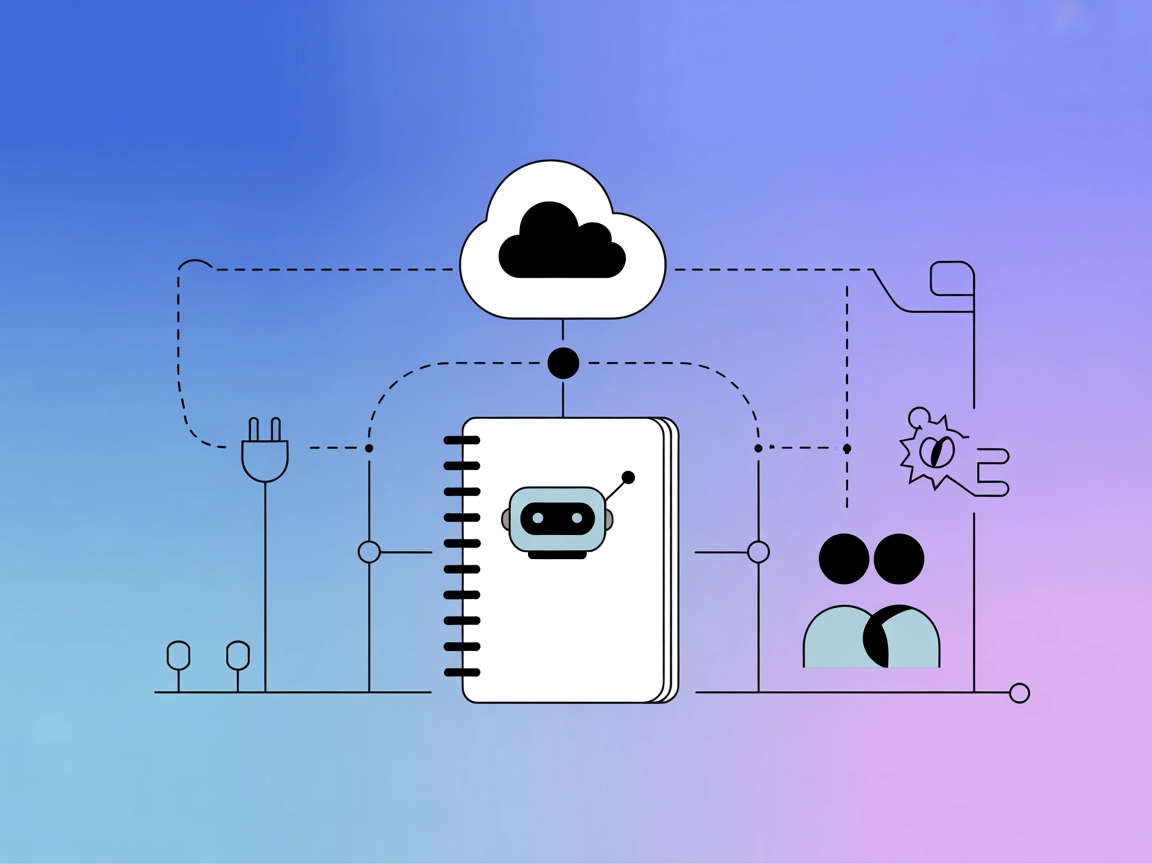
onenote MCP Server
The onenote MCP Server connects AI assistants with Microsoft OneNote, enabling automated note retrieval, organization, and smart search through standardized pro...

RedNote MCP Server unlocks AI-powered access to XiaoHongShu notes and comments, supporting advanced automation, development, and social content analysis with persistent authentication.
FlowHunt provides an additional security layer between your internal systems and AI tools, giving you granular control over which tools are accessible from your MCP servers. MCP servers hosted in our infrastructure can be seamlessly integrated with FlowHunt's chatbot as well as popular AI platforms like ChatGPT, Claude, and various AI editors.
RedNote MCP Server is an MCP (Model Context Protocol) service designed to facilitate AI assistants’ access to content from RedNote (XiaoHongShu, 小红书/xhs). By bridging the gap between AI tools and external data sources, RedNote MCP allows developers and AI agents to perform keyword-based note searches, retrieve note and comment content via URLs, and manage authentication seamlessly. This greatly enhances development workflows by enabling direct data retrieval and interaction with XiaoHongShu’s vast content ecosystem, all while supporting persistent authentication and command-line utility. With these capabilities, RedNote MCP empowers AI systems to leverage rich social content in their interactions, automations, and user-facing features.
No explicit prompt templates are documented in the repository or README.
No explicit resources are documented in the repository or README.
No installation/configuration instructions for Windsurf found in the repository.
No installation/configuration instructions for Claude found in the repository.
npm install -g rednote-mcp
rednote-mcp init
settings.json and add:{
"mcpServers": {
"RedNote MCP": {
"command": "rednote-mcp",
"args": [
"--stdio"
]
}
}
}
{
"mcpServers": {
"RedNote MCP": {
"command": "npx",
"args": [
"rednote-mcp",
"--stdio"
]
}
}
}
No explicit API key usage or environment variable instructions found. Authentication is handled via browser-based login and cookie persistence.
No installation/configuration instructions for Cline found in the repository.
Using MCP in FlowHunt
To integrate MCP servers into your FlowHunt workflow, start by adding the MCP component to your flow and connecting it to your AI agent:

Click on the MCP component to open the configuration panel. In the system MCP configuration section, insert your MCP server details using this JSON format:
{
"RedNote MCP": {
"transport": "streamable_http",
"url": "https://yourmcpserver.example/pathtothemcp/url"
}
}
Once configured, the AI agent is now able to use this MCP as a tool with access to all its functions and capabilities. Remember to change “RedNote MCP” to whatever the actual name of your MCP server is and replace the URL with your own MCP server URL.
| Section | Availability | Details/Notes |
|---|---|---|
| Overview | ✅ | Concise overview found in README.md |
| List of Prompts | ⛔ | No prompt templates documented. |
| List of Resources | ⛔ | No explicit resources documented. |
| List of Tools | ✅ | Tools and features described in README.md (authentication, search, note/comment retrieval). |
| Securing API Keys | ⛔ | Authentication is browser/cookie-based, not via API keys. |
| Sampling Support (less important in evaluation) | ⛔ | No evidence of sampling feature support. |
Roots support: ⛔ (Not documented)
Sampling support: ⛔ (Not documented)
Our opinion:
RedNote MCP provides a specialized and practical bridge for accessing XiaoHongShu content in development environments, especially for those needing social content integration. However, the documentation lacks details on prompts, resources, and advanced MCP features like roots or sampling, which limits its interoperability in more complex agentic workflows.
| Has a LICENSE | ✅ (MIT) |
|---|---|
| Has at least one tool | ✅ |
| Number of Forks | 80 |
| Number of Stars | 590 |
Rating:
Based on the tables above, I would rate this MCP server a 6/10 for general MCP integration: it covers essential use cases for XiaoHongShu access with clear authentication and tool features, but lacks advanced MCP resources, prompt templates, and explicit support for roots and sampling.
RedNote MCP Server is a Model Context Protocol service that allows AI assistants and developers to search for XiaoHongShu (小红书/xhs) notes by keyword, retrieve note and comment content via URL, and manage authentication using browser-based login and cookie persistence.
RedNote MCP is ideal for content discovery, automated data gathering, user engagement or sentiment analysis, and workflow automation involving XiaoHongShu’s social content.
Authentication is managed through browser-based login and persistent cookies, ensuring secure and continuous access to XiaoHongShu content without relying on API keys.
No, authentication is handled exclusively via cookie persistence after browser login, not via environment variables or API keys.
RedNote MCP provides: persistent authentication, keyword-based note search, note content retrieval by URL, and comment retrieval by URL.
No explicit prompt templates or sampling features are documented for RedNote MCP at this time.
Empower your AI workflows with direct access to XiaoHongShu’s content. Set up RedNote MCP Server and streamline social data integration, search, and automation in your projects.

The onenote MCP Server connects AI assistants with Microsoft OneNote, enabling automated note retrieval, organization, and smart search through standardized pro...

The Notion MCP Server connects FlowHunt’s AI agents directly to your Notion workspace, enabling advanced automation, database management, and content operations...

The Workflowy MCP Server connects AI assistants with Workflowy, enabling automated note-taking, project management, and productivity workflows directly within F...
Cookie Consent
We use cookies to enhance your browsing experience and analyze our traffic. See our privacy policy.